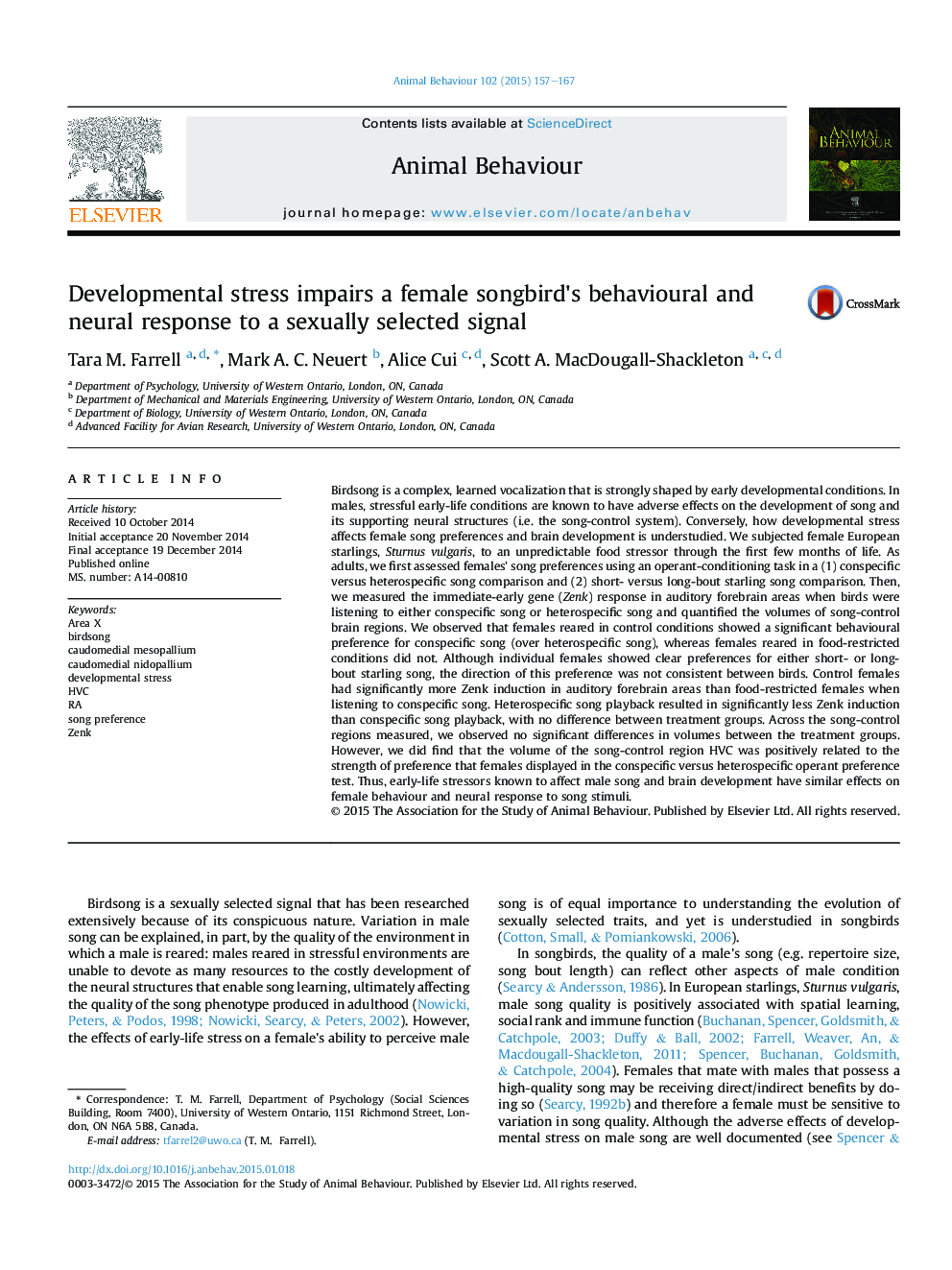| Article ID | Journal | Published Year | Pages | File Type |
|---|---|---|---|---|
| 8490039 | Animal Behaviour | 2015 | 11 Pages |
Abstract
Birdsong is a complex, learned vocalization that is strongly shaped by early developmental conditions. In males, stressful early-life conditions are known to have adverse effects on the development of song and its supporting neural structures (i.e. the song-control system). Conversely, how developmental stress affects female song preferences and brain development is understudied. We subjected female European starlings, Sturnus vulgaris, to an unpredictable food stressor through the first few months of life. As adults, we first assessed females' song preferences using an operant-conditioning task in a (1) conspecific versus heterospecific song comparison and (2) short- versus long-bout starling song comparison. Then, we measured the immediate-early gene (Zenk) response in auditory forebrain areas when birds were listening to either conspecific song or heterospecific song and quantified the volumes of song-control brain regions. We observed that females reared in control conditions showed a significant behavioural preference for conspecific song (over heterospecific song), whereas females reared in food-restricted conditions did not. Although individual females showed clear preferences for either short- or long-bout starling song, the direction of this preference was not consistent between birds. Control females had significantly more Zenk induction in auditory forebrain areas than food-restricted females when listening to conspecific song. Heterospecific song playback resulted in significantly less Zenk induction than conspecific song playback, with no difference between treatment groups. Across the song-control regions measured, we observed no significant differences in volumes between the treatment groups. However, we did find that the volume of the song-control region HVC was positively related to the strength of preference that females displayed in the conspecific versus heterospecific operant preference test. Thus, early-life stressors known to affect male song and brain development have similar effects on female behaviour and neural response to song stimuli.
Related Topics
Life Sciences
Agricultural and Biological Sciences
Animal Science and Zoology
Authors
Tara M. Farrell, Mark A.C. Neuert, Alice Cui, Scott A. MacDougall-Shackleton,
